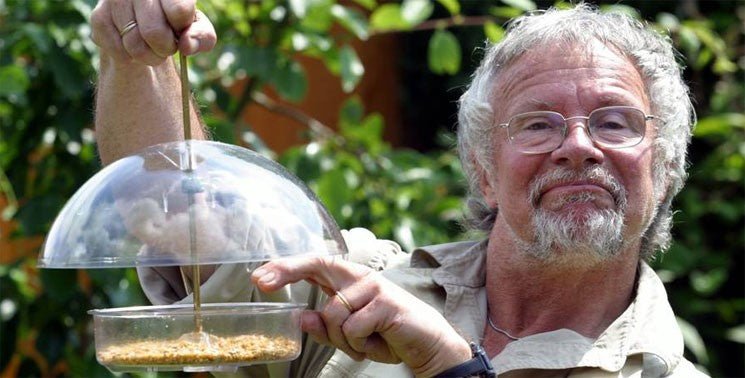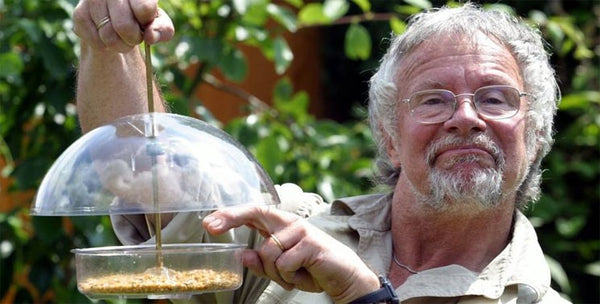
Gardening for Wildlife: Tips to Create a Nature-Friendly Garden
Share
Friday, 29th August 2014
Bill Oddie explores the importance of wildlife and how easy it is to get involved.
I once made the mistake of asking Bill Oddie to write an A5 sized article about Wildlife Gardening. His reply was brief: "No!" But he had a very good reason for turning me down...

To set the scene, it's May, 2003, it's a cool summer's day, and we're nearing the end of a busy photo session with Bill for forthcoming Haith's publications.
A friendly neighbour had kindly offered her garden as the backdrop and the day had been a great success. We were all getting along fine. So fine in fact that, I thought I'd push my luck and ask for an A5 piece from Bill on Wildlife Gardening...
"No!" said Bill without hesitation.
"No?" I asked timidly.
"No!" confirmed Bill.
At the time, I was taken aback. It seemed a simple request and I was certain that the Haith's community would appreciate reading all they needed to know about Wildlife Gardening. Over the years, however, and numerous sessions later with Bill, I understood why he had a very good reason for turning my request down - he didn't think he could do wildlife gardening any justice with such a small feature.
However, a few weeks after that 2003 session, a fax (remember them?) arrived on my desk with the following message from Bill Oddie:
"Plant trees, bushes and shrubs, which produce berries or fruits, or even better, which attract insects: Favourites are Hawthorn, Rowan and Mahonia.
Don’t complain about the lack of Song Thrushes if you just happen to kill off slugs and snails, and don’t ask, “Where have all the beautiful ladybirds gone?” If you pummel greenfly with insecticide!"
Love Bill x
As with all talented writers, Bill can say in two paragraphs what others pad out to be a two page article in a gardening magazine. His wildlife gardening advice didn't fill the A5 article - there was space even for a photo or two; however, it was (and still is) nonetheless informative and helpful. No pomp, no ceremony, just a couple of straightforward paragraphs that could help change nature's fortunes in just about any garden in Britain.
Written by Simon H. King
